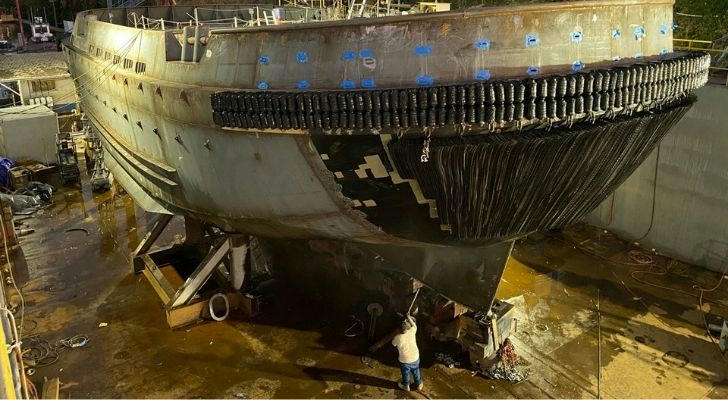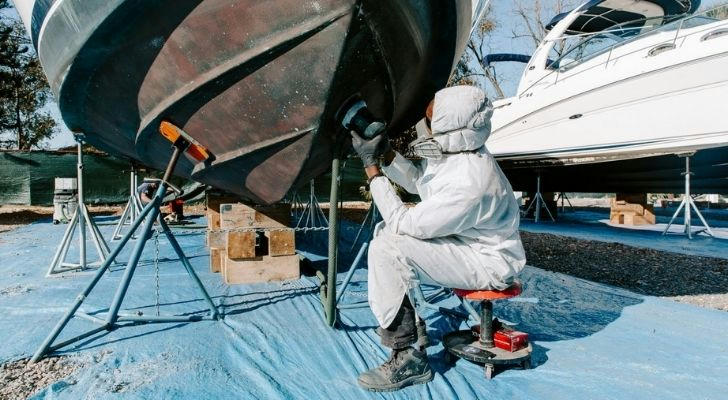Earn While You Learn: 5 Pathways to a High-Paying Marine Mechanic Career Through Paid Apprenticeships
Picture yourself mastering the thunderous power of ship engines while earning a solid $18–$32 per hour, all without the burden of student loans or debt. Across shipyards and ports throughout the U.S., government- and corporate-funded apprenticeship programs are transforming beginners into certified marine mechanics with starting salaries exceeding $54,000 annually (BLS, 2023). These apprenticeships seamlessly combine hands-on experience with theoretical learning, delivering steady paychecks and unmatched job security in an industry urgently needing to fill a 15,000-worker gap (MARAD, 2024).

Five Paid Pathways to Certification
Federal Apprenticeships
The U.S. Department of Labor partners with employers like General Dynamics for 3–4 year programs covering diesel repair and hydraulics. Apprentices earn $35,000–$68,000 during training.
State Maritime Colleges
Florida’s Maritime Career Institute offers tuition + $1,200/month stipends for residents committing to local shipyard jobs post-graduation.
Union Training Centers
The International Brotherhood of Boilermakers (IBB) provides 4-year apprenticeships starting at $19.50/hour, escalating to $34/hour by Year 4.
Veteran Programs
Using the GI Bill®, veterans earn $2,000+/month housing allowances while training at schools like Seattle Maritime Academy.
Corporate Sponsorships
Carnival Cruise Line’s 12-month program pays $23.50/hour + housing in exchange for a 2-year service commitment.
Core Training Components

Apprentices master:
Diesel Engine Overhauls: 500+ hours on Caterpillar/MAN systems
USCG Compliance: Fuel systems and emissions standards
Welding Certifications: Underwater and aluminum TIG techniques
ABYC Exam Prep: 92% first-time pass rates in registered programs
Why Choose Paid Marine Mechanic Training?
No Debt Education: Save $25,000+ versus traditional trade schools
Guaranteed Jobs: 94% placement rates in federal apprenticeships
Salary Growth: Certified mechanics average $72,000/year after 5 years (PayScale, 2024)
Career Mobility: Credits transfer to naval architecture/engineering degrees
Age-Specific Opportunities
Teens (18–21):
- Career-tech high school programs like Louisiana’s Dual Enrollment Maritime Track offer diplomas with $15,000 earned credits.
Adults (22–54):
- State retraining grants prioritize displaced workers, with $5,000 tool stipends in Michigan and Ohio.
55+ Learners:
- Port of Los Angeles’ Evening Apprenticeships allow part-time training at $29/hour.
Application Checklist
Follow these steps to apply for a government-supported paid apprenticeship program:

Research Programs: Use the MARAD Training Finder
Gather Documents: High school/GED records, mechanical aptitude proof (e.g., auto repair certificates)
Pass Screenings: Drug tests and physical exams (required for offshore roles)
Interview Prep: Showcase problem-solving skills through DIY project portfolios
Certifications: Your Career Accelerators
ABYC Marine Systems: Entry-level; avg. salary $52,000
USCG QMED: For deep-sea mechanics; $68,000+
AWS CWI Welding: Adds $12,000/year (American Welding Society, 2023)
Compare credentials at National Marine Manufacturers Association.
Success Stories

Jake Thompson (Mobile, AL)
A former auto mechanic, Jake joined Austal USA’s Apprenticeship through a DOL grant. Over 28 months, he earned $48,200 while earning ABYC/USCG certifications. Now a lead shipyard mechanic, he earns $79,500/year with overtime.
Maria Gutierrez (San Diego, CA)
At 47, Maria transitioned from retail via the Port of San Diego’s 55+ Program. She saved $31,000 during training and now maintains luxury yachts, earning $65,000/year plus tips.
Chart Your Course Today
With $1.8 billion in new U.S. shipyard investments (White House, 2024), marine mechanics enjoy unparalleled job security. Government-funded apprenticeships turn $0 upfront costs into $2.1M lifetime earnings. Start your journey:
Bookmark Apprenticeship.gov’s Marine Sector
AttendIBB Union Workshops
Contact local Workforce Development Boards
